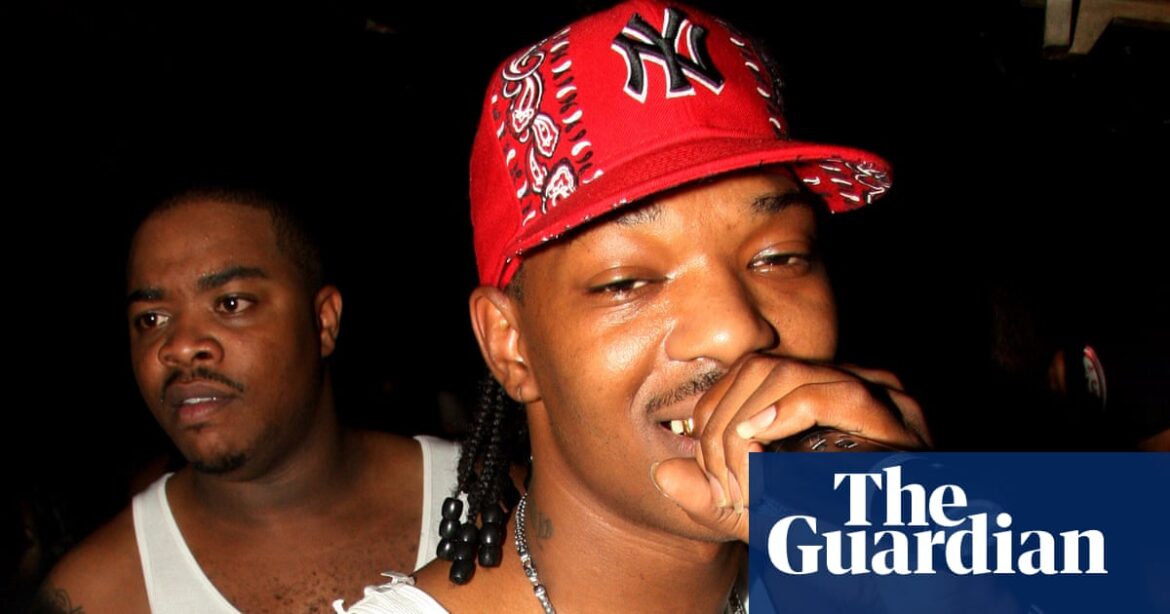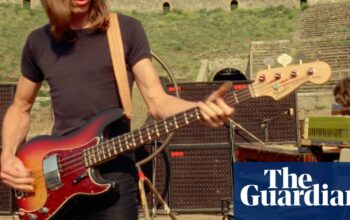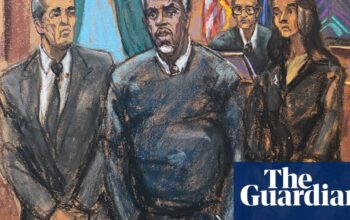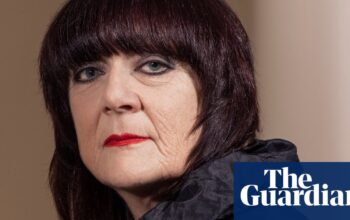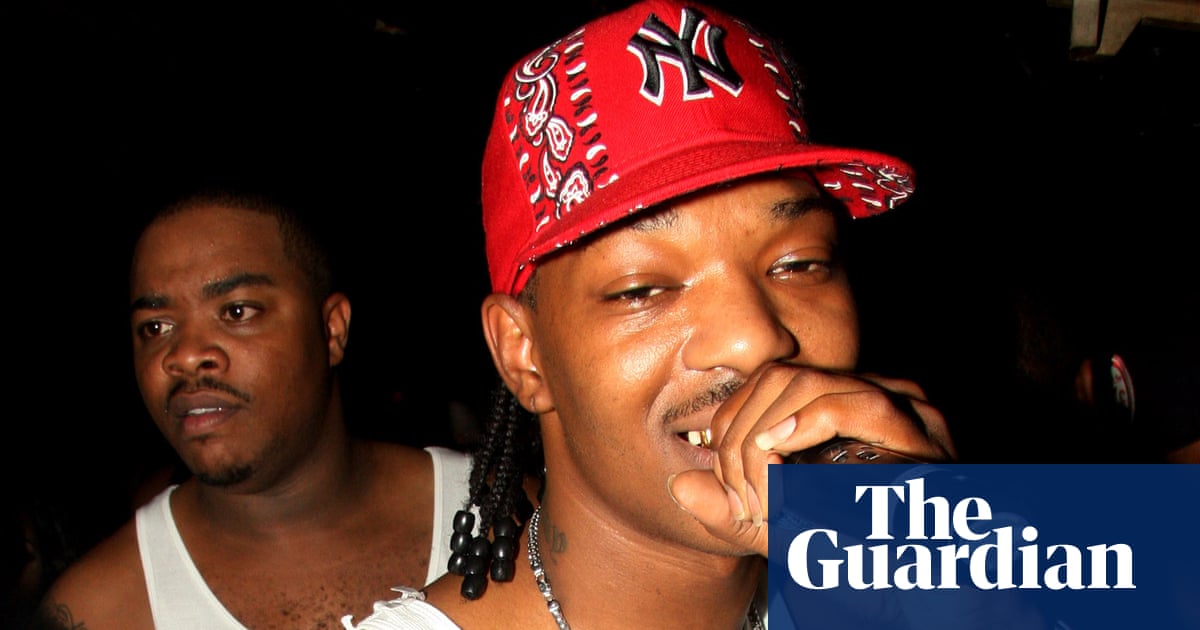
The rapper BG is no longer at risk of a return to federal prison after performing alongside fellow artists with prior felony convictions while on supervised release from custody, according to prosecutors.
But a federal judge is prepared to scrutinize every lyric the musician, whose legal name is Christopher Dorsey, has written since he got out of prison on gun charges to determine whether he is adequately attempting “to re-enter society as a responsible, law-abiding citizen” – or whether his supervised release conditions should be tightened, according to new court filings.
The latest legalities ensnaring the maker of the late 1990s classic Bling Bling have touched off a dialogue in some circles about balancing an American musician’s right to free expression under the US constitution – as well as his need to make a living – with authorities’ prerogative to enforce the technicalities of his supervised prison release plan.
Music industry titans ranging from Jay-Z and Megan Thee Stallion to Coldplay and Christina Aguilera have denounced prosecutors’ practice of using rap lyrics as evidence in US criminal courts, saying the method is “racially targeted”. But that has generally not dissuaded prosecutors from resorting to the tactic.
A federal probation officer successfully requested in March that Dorsey be arrested on allegations that he failed to obtain the necessary clearance to perform at a concert in Las Vegas, Nevada, where he now lives, alongside fellow rapper Lil Boosie. The probation officer also alleged that Dorsey had not sought needed permission to publish an album alongside the Grammy-nominated rapper Gucci Mane.
People on supervised release are generally required to “refrain from … associating unnecessarily with” those who have prior felony convictions, among other conditions, officials have said.
Attorneys for Dorsey later contended that those monitoring him at a halfway house before he was granted supervised release had provided him the adequate permission for the work in question. And he was released on his own recognizance after his arrest pending the outcome of the case, which required Dorsey to make an initial court appearance in his home town of New Orleans in April.
But since then, prosecutors have said that – despite the permissions cited by his lawyers – Dorsey violated supervised release terms barring him from having unsanctioned associations with any people previously convicted of felonies.
Lil Boosie and Gucci Mane – whose legal names are Torence Hatch Jr and Radric Davis, respectively – each have prior felony convictions.
Meanwhile, in documents dated 13 May, prosecutors allege that Dorsey’s work while on supervised release was undermining his chances at achieving his ostensible goal: rehabilitation.
They point to more recent lyrics in which Dorsey allegedly exalts freeing Telly Hankton and Walter “Moonie” Porter, notorious figures in New Orleans who were each sentenced to life imprisonment after being convicted in a drug-dealing and gang-violence racketeering case attributing multiple murders to them.
“Free Telly and Moonie – they got life in that bitch,” Dorsey is heard singing about 45 seconds into a song titled The Comeback Kid.
A new Dorsey song title prosecutors flagged as concerning was Same Gangsta.
“It appears that Mr Dorsey is getting back into the same lifestyle that led to his long period of incarceration,” prosecutors wrote. Noting the 43-year-old had been a professional musician for most of his life, they added: “Mr Dorsey is a talented rap artist and has been since the age of 13. Unfortunately, Mr Dorsey has used his talents to glorify the violent, lawless, ‘gangsta’ lifestyle.”
Prosecutors handling Dorsey’s case made clear that they do not believe revoking his supervised release or imposing “a return to incarceration is warranted”. But they did ask the New Orleans-based federal judge Susie Morgan to clarify that Dorsey must avoid working with people previously convicted of felonies unless otherwise given permission to do so.
They also want Morgan to clarify that Dorsey must obtain court permission to make a living from “self-employment” as well as to travel outside Las Vegas.
Morgan approved prosecutors’ request for Dorsey to turn over any song lyrics he has made or creates while on supervised release “to monitor his work”, with the government promising to “safeguard against any copyright infringements”. He was given until Tuesday to turn over his latest lyrics, before a hearing tentatively scheduled for 18 June, records show.
Attorneys for Dorsey handed over the requested lyrics Tuesday under seal, though they wrote that forcing him to do so violated his free speech rights.
They also argued that Dorsey does not merit modified supervised release terms because he is in fact “a benefit to the community and has changed for the better”.
The filing said Dorsey has gained employment with the Emerald Dream Foundation, a nonprofited dedicated to providing assistance and education to men, women and children in need. And has also been regularly working with the organization Hope for Prisoners, which provides social support to formerly incarcerated people, including Dorsey himself.
“Contrary to the government’s assertions, Mr Dorsey has taken his rehabiliation and supervised release conditions seriously,” the lyricist’s attorneys argued.
BG – or Baby Gangsta – was part of Cash Money Records’ Hot Boys alongside fellow New Orleans rappers Lil Wayne and Juvenile. One of the group’s albums debuted among the top five on the Billboard 200 in 1999 and went platinum. That same year, Dorsey’s signature single Bling Bling peaked at 36 on the Billboard Hot 100, with fans captivated by the Hot Boys’ lyrics about dealing illicit street drugs to survive financially, protecting their trade violently and then rewarding themselves with jewelry and flashy cars.
Dorsey received a 14-year prison sentence in July 2012 after pleading guilty to illegally possessing a gun during a 2009 traffic stop, among other related charges.
By fall 2023, Dorsey was transferred to a halfway house. His sentence subsequently was reduced on 24 January to time he had already served, and he began a two-year period of living under federal supervision outside the halfway house on 1 February.
His March arrest threatened dreams among many music fans that the Hot Boys could reunite and all perform together one day relatively soon.
Source: theguardian.com
